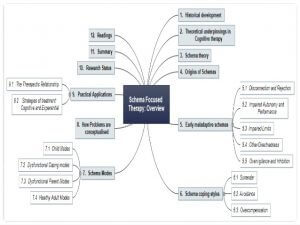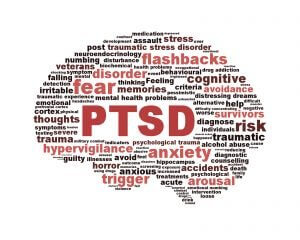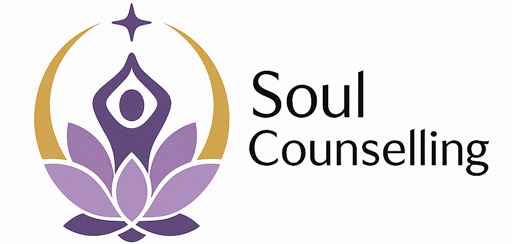About Soul Counselling
Christine Feyes is a qualified Counsellor and Psychologist helping those in need to overcome their fears and challenges .
When your are looking for help in dealing with your current life issues one of the most important tasks is to choose a good counsellor.
“Evidence suggests that the quality of the relationship between the counsellor and client, is the single greatest predictor of therapy success. Though the skill of the counsellor is an important factor for predicting change, research indicates that the relationship between client and counsellor is even more important than the treatment style and techniques used.”
Qualifications obtained both overseas (B.A. Psychology & Social Work) and Australia
Besides the standard qualifications Christine has extra training in the following counselling techniques and strategies:

Schema therapy model

schema therapy
Schema therapy was developed by Jeffrey E. Young for use in treatment when patients fail to respond or relapse after having been through other therapies (for example, traditional cognitive behavioural therapy). Schema therapy is an integrative psychotherapy combining theory and techniques from previously existing therapies, including cognitive behavioural therapy, psychoanalytic object relations theory, attachment theory, and Gestalt therapy.
ACT (act & commitment therapy model);
Acceptance and commitment therapy (ACT, typically pronounced as the word “act”) is a form of counselling and a branch of clinical behaviour analysis. It is an empirically-based psychological intervention that uses acceptance and mindfulness strategies mixed in different ways with commitment and behaviour-change strategies, to increase psychological flexibility.
The objective of ACT is not elimination of difficult feelings; rather, it is to be present with what life brings us and to “move toward valued behaviour”. Acceptance and commitment therapy invites people to open up to unpleasant feelings, and learn not to overreact to them, and not avoid situations where they are invoked. Its therapeutic effect is a positive spiral where feeling better leads to a better understanding of the truth. In ACT, ‘truth’ is measured through the concept of ‘workability’, or what works to take another step toward what matters (e.g. values, meaning).
Shark cage model; ( a practical framework for addressing vulnerability and re-victimisation in women);
The ‘Shark Cage’ metaphor offers a conceptual and practical tool for understanding and reducing re-victimisation in abused women within a counselling context. The Shark Cage is congruent with theoretical feminist and human rights frameworks, whilst offering accessible, concrete and hopeful strategies for change in women’s lives. It reworks the often difficult-to-grasp idea of boundaries, and learning to recognise boundary violations, into concepts women can visualise and relate to. Women struggling to understand why abuse is so prevalent in their lives, and the counsellors struggling to help them, will find the Shark Cage a useful tool.
Sexual Assault counselling;
Extensive experience and training in therapy for trauma after sexual assault
PTSD for Australian Veterans;
Currently, we do not accept patients under the DVA support scheme but we are more then happy to offer discounts to our servicemen in need of help. ( Please contact us for more details if resonates )
CBT ( cognitive behavioural therapy model);
Cognitive – Behavioural Therapy (CBT) is a psycho-social intervention that is the most widely used evidence-based practice for improving mental health. Guided by empirical research, CBT focuses on the development of personal coping strategies that target solving current problems and changing unhelpful patterns in cognitions (e.g. thoughts, beliefs, and attitudes), behaviours, and emotional regulation.It was originally designed to treat depression, and is now used for a number of mental health conditions, for example anxiety.
Introduction to Somatic therapy / body work;
Somatic therapy is a holistic therapy that studies the relationship between the mind and body in regard to psychological past. Somatic psychotherapy is one of the best ways to help patients suffering from psychological traumas cope, recover and live a normal life.
Somatic experiencing is a form of alternative therapy aimed at relieving the symptoms of post-traumatic stress disorder (PTSD) and other mental and physical trauma-related health problems by focusing on the client’s perceived body sensations (or somatic experiences).
Responding to family & domestic Violence training;
- Prevalence and scope of domestic violence, child abuse and sexual assault
- Laws that underpin the work and recent/pending changes
- Domestic violence services locally and nationally
- Adverse childhood experiences and long-term solutions
- How to address equity problems and community access
- Responding to the complexity of risk and safety
- Practicing brief intervention and effective referral
Trauma frontiers training ( PTSD);

PTSD Counselling
Post-traumatic stress disorder (PTSD) is a mental disorder that can develop after a person is exposed to a traumatic event, such as sexual assault, warfare, traffic collisions, or other threats on a person’s life.
CBT seeks to change the way a person feels and acts by changing the patterns of thinking or behaviour, or both, responsible for negative emotions. CBT has been proven to be an effective treatment for PTSD and is currently considered the standard of care for PTSD.
Reference:
Dryden, W. (2009). The therapeutic alliance as an integrating framework. In W. Dryden, & A. Reeves (Ed.), Key Issues for Counselling in Action (pp. 1-17) (2nd ed.) UK: Sage Publications Ltd.
CBT – en.wikipedia.org/wiki/Cognitive_behavioral_therapy
Schema Therapy – en.wikipedia.org/wiki/Schema_therapy
ACT – en.wikipedia.org/wiki/Acceptance_and_commitment_therapy
Shark Cage – www.psychotherapy.com.au/fileadmin/site_files/pdfs/SharkCage.pdf
